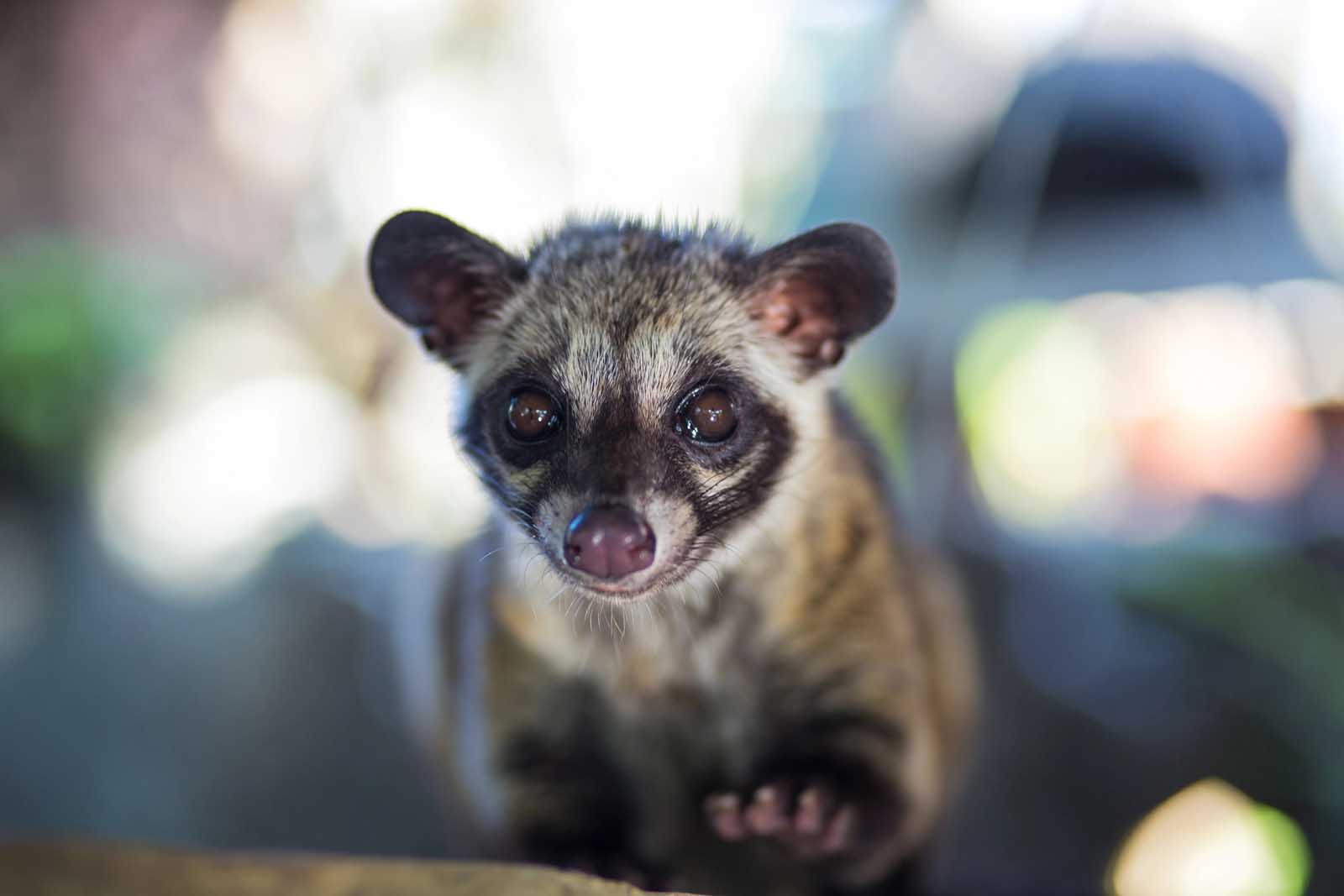
Civits are dying for your coffee. Today is World Civet Day—a day most people have never heard of but one that desperately needs to be on every traveler’s radar. Because behind that $50 cup of “cat-poo-chino” lies a global industry built on animal cruelty, misinformation, and our obsession with so-called luxury experiences.
If you’re a traveler, influencer, or coffee lover, it’s time to face an uncomfortable truth: Civet coffee isn’t rare. It’s farmed. It’s cruel. And it’s trending for all the wrong reasons.
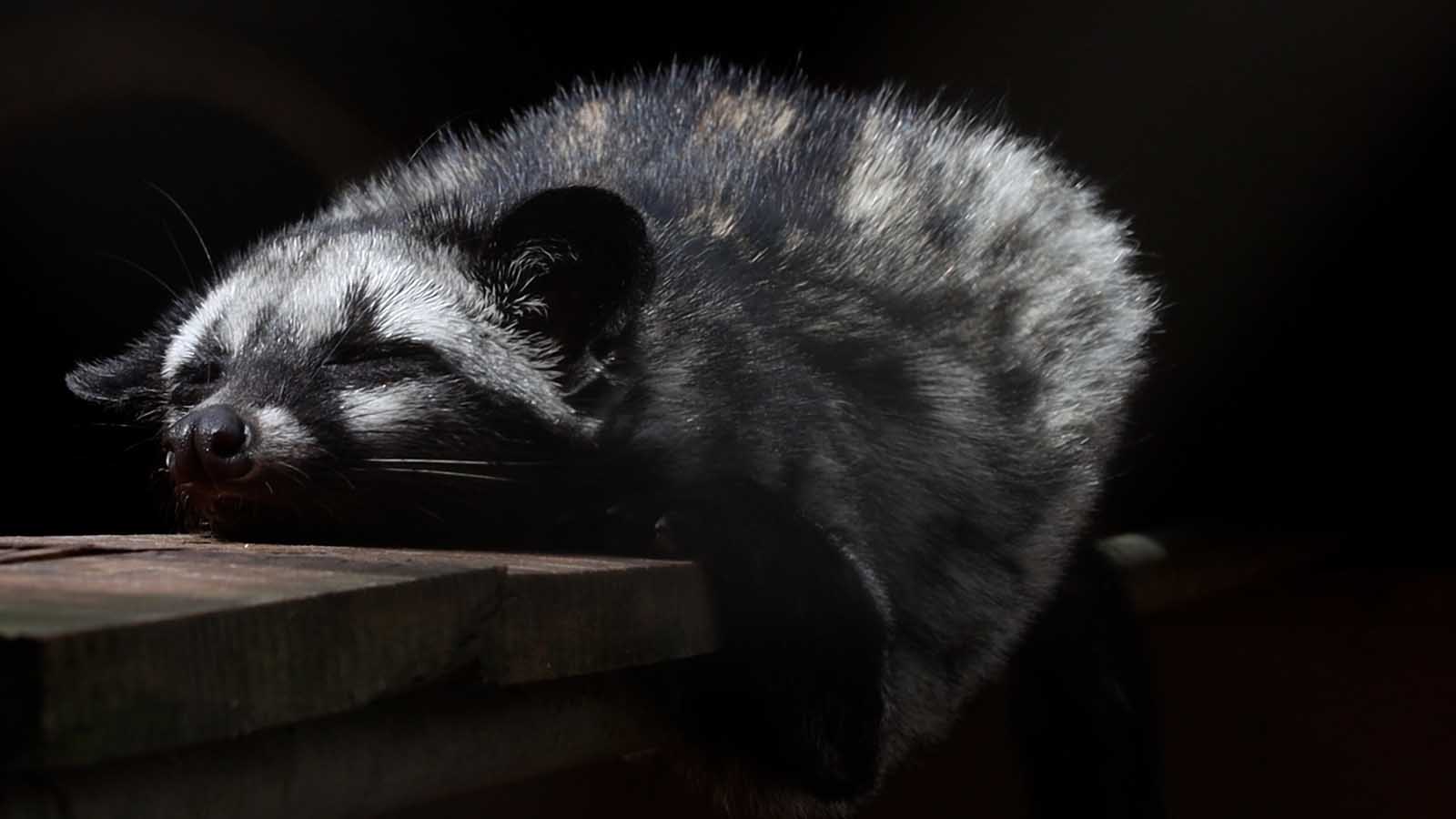
Civet Coffee: The Brew That Shouldn’t Exist
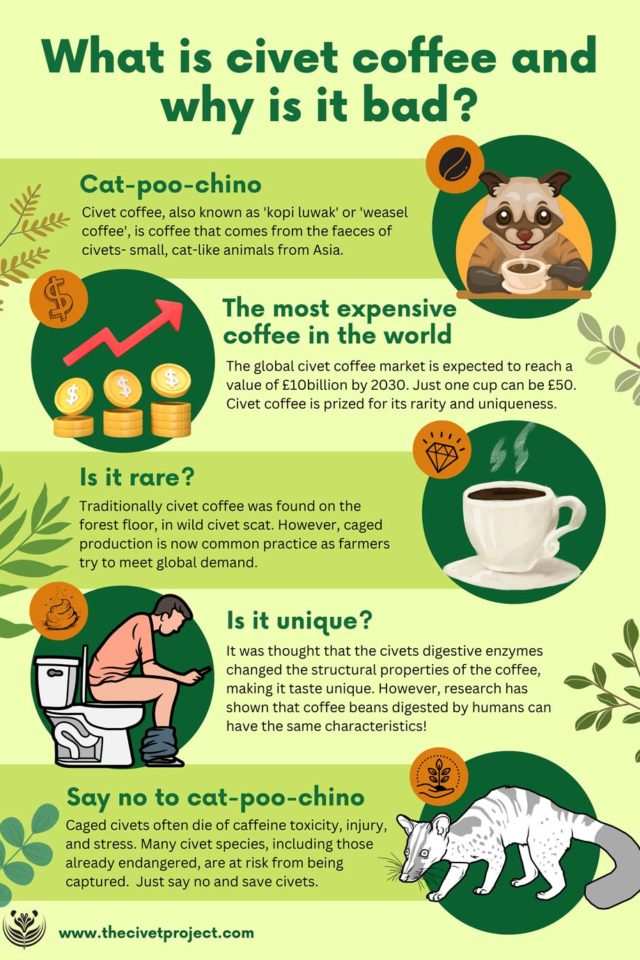
Civet coffee—also called kopi luwak or “weasel coffee” is made from beans that have passed through the digestive system of civets, small nocturnal animals native to Asia. While it started as a quirky discovery of beans collected from the forest floor, demand quickly turned it into an industrialized nightmare.
Today, most civet coffee comes from civets kept in cramped, filthy cages. Many are illegally trafficked from the wild. The animals are force-fed coffee cherries until they suffer from caffeine toxicity, malnutrition, and stress. All so someone can say they’ve tried “the rarest coffee on Earth.”
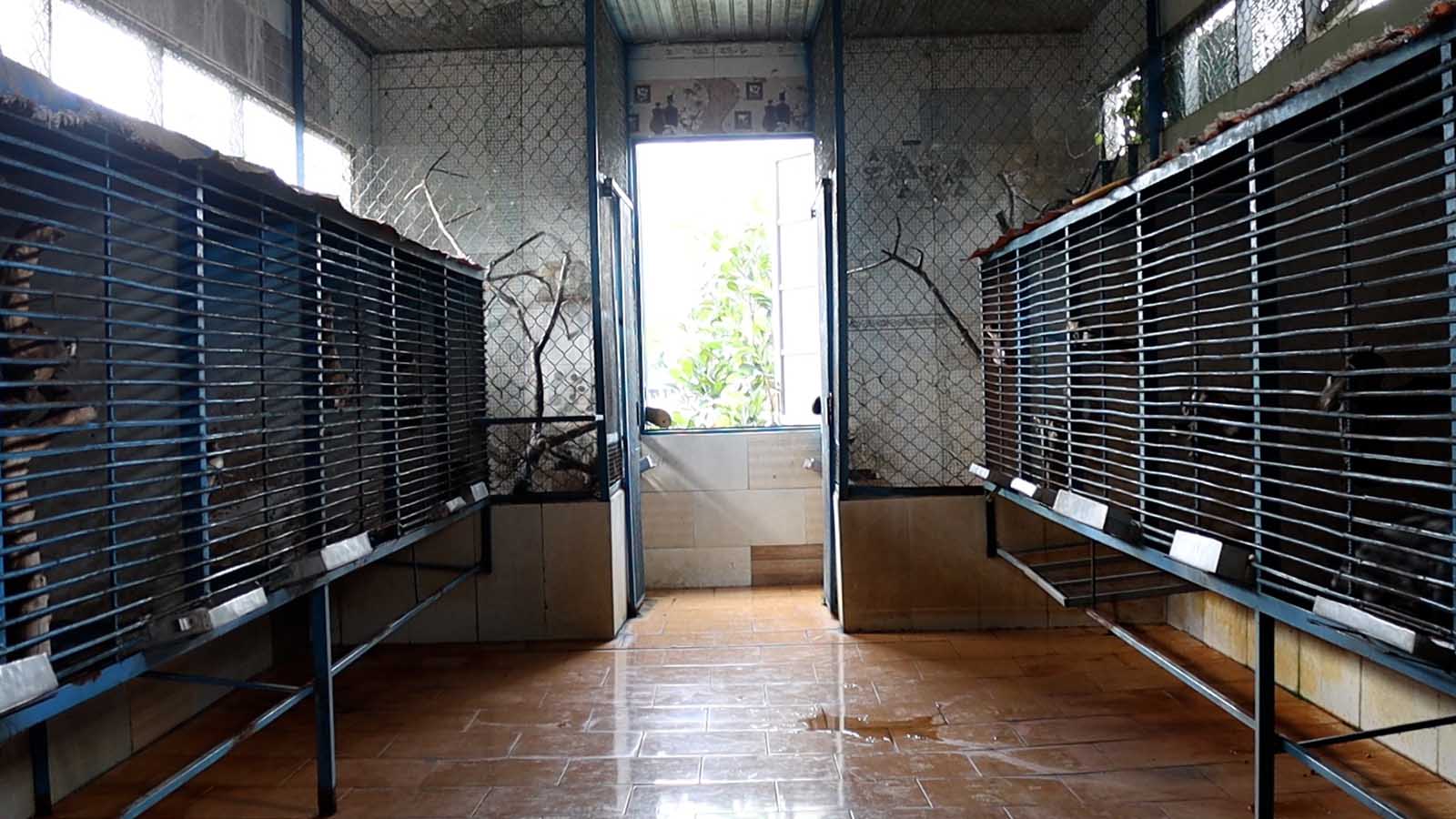
Spoiler alert: It’s not rare anymore. It’s mass-produced, and civets are paying the price.
The Social Media Problem: #CivetSelfie Culture
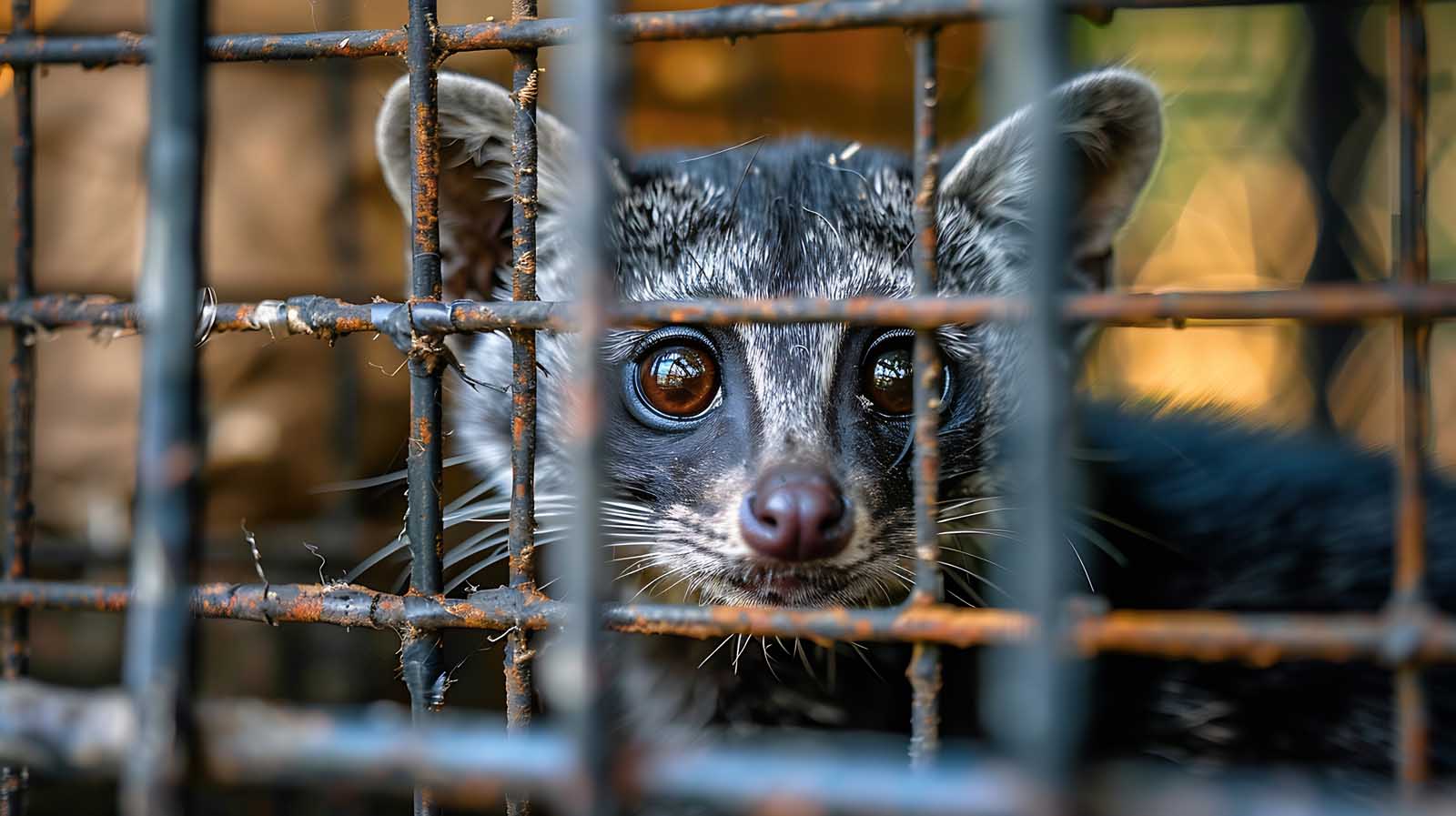
Let’s talk Instagram. Those adorable civet selfies? They’re not cute. They’re evidence of an animal suffering in silence.
Captive civets are often used as tourist photo props in Southeast Asia, particularly in Bali and Vietnam. Tourists snap pics, share them, and boom—another follower wants the same experience. But these selfies fuel a brutal supply chain where wild civets are captured, caged, and commercialized for our entertainment.
If your travel pics involve a wild animal in a cage, you’re not promoting wanderlust—you’re promoting wildlife abuse.
How Travel Fuels Cruelty
Travelers unknowingly support civet exploitation every day by:
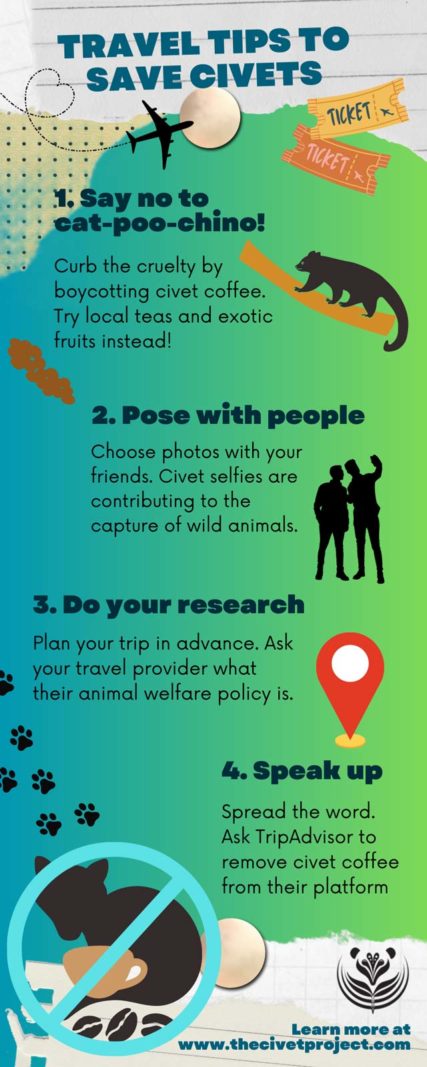
- Buying civet coffee at cafés or airport gift shops
- Visiting civet coffee plantations listed on TripAdvisor
- Posing with civets for social media clout
- Not asking tour companies about their animal welfare policies
It’s time to shift the narrative. Ethical travel isn’t about “doing no harm” anymore—it’s about actively doing good. And that starts with being informed.
What You Can Do Today—World Civet Day and Beyond
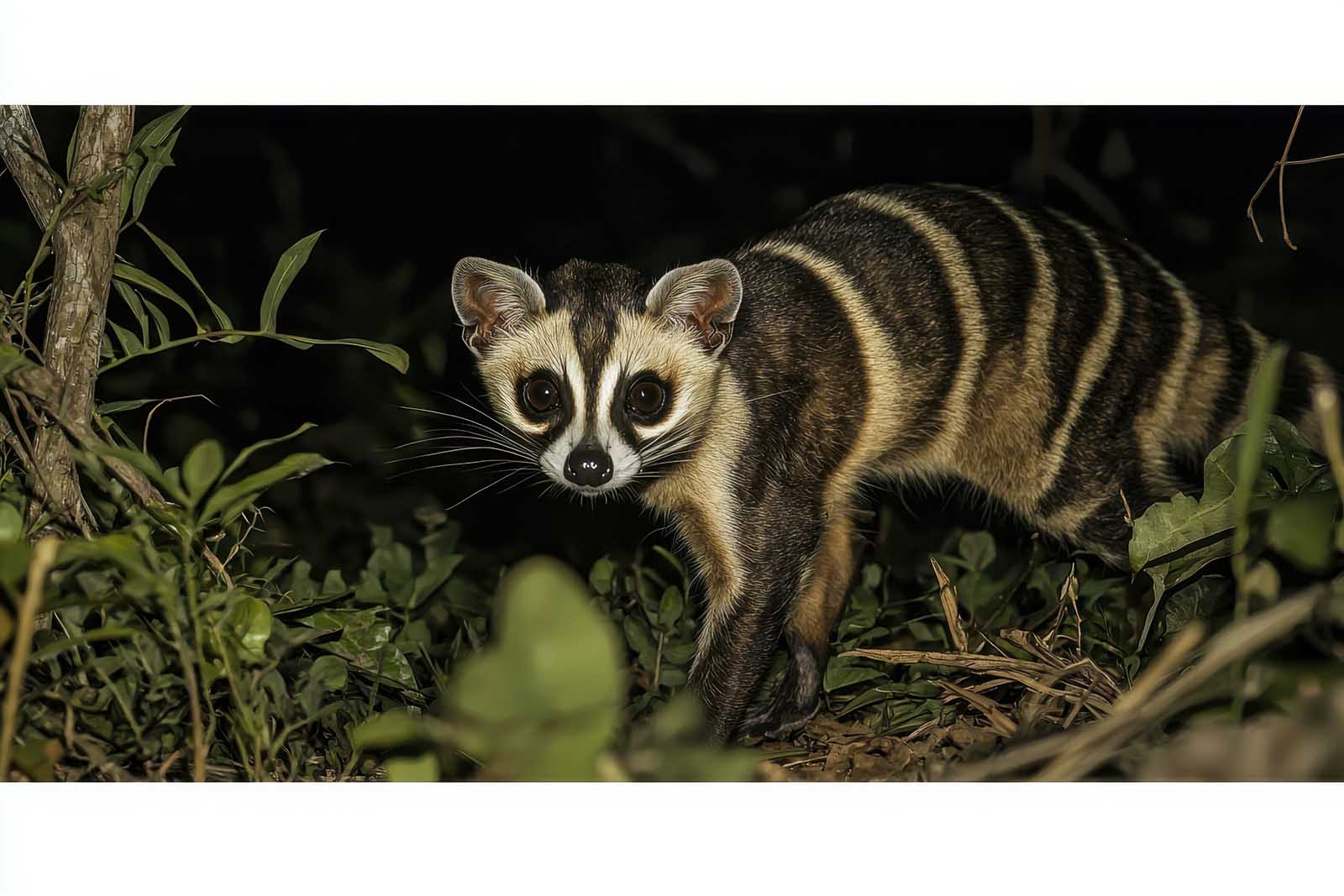
1. Say NO to Cat-Poo-Chino
Boycott civet coffee. It’s not exotic—it’s exploitative. Try local teas, fresh tropical juices, or even sustainably-grown coffee instead. You don’t need cruelty in your cup to have a memorable experience.
2. Pose with People, Not Wildlife
Civet selfies are contributing to the illegal wildlife trade. Choose human connections over hashtags. Trust us, your conscience will thank you.
3. Research Before You Book
Ask tour companies: What’s your animal welfare policy? If they can’t answer, that’s your answer.
4. Speak Up
Use your voice. Leave reviews, send emails, and urge platforms like TripAdvisor to stop promoting civet coffee experiences. Demand better.
Civility Isn’t Just Politeness—It’s Action
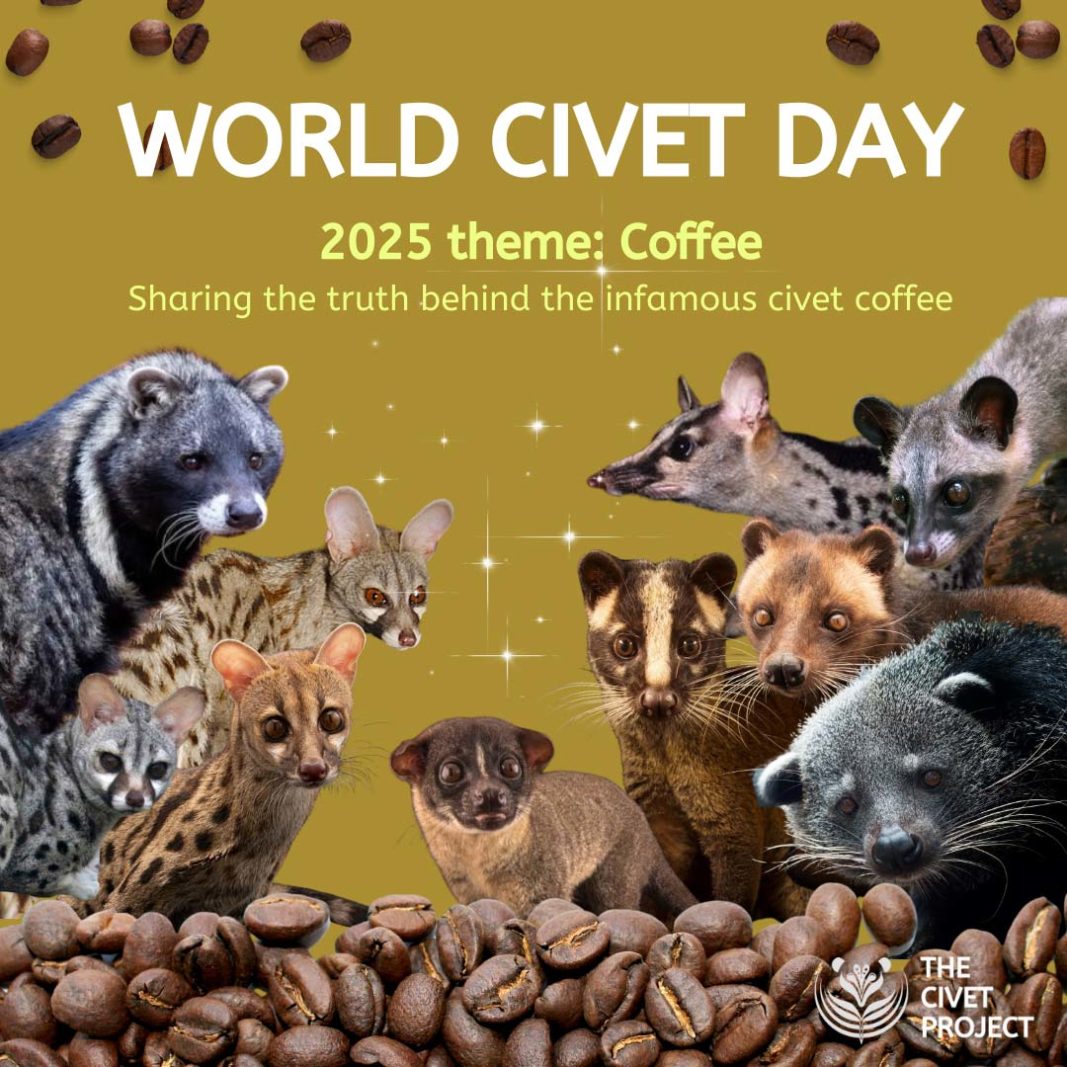
On World Civet Day, civility means protecting the voiceless. It means recognizing that our travel choices matter. It means taking a stand—even when it’s inconvenient or unpopular.
In a world where cruelty is often rebranded as culture and exploitation is disguised as experience, let’s be the travelers who ask better questions and expect better answers.
Because being kind isn’t soft—it’s revolutionary.
Want to Help Right Now?
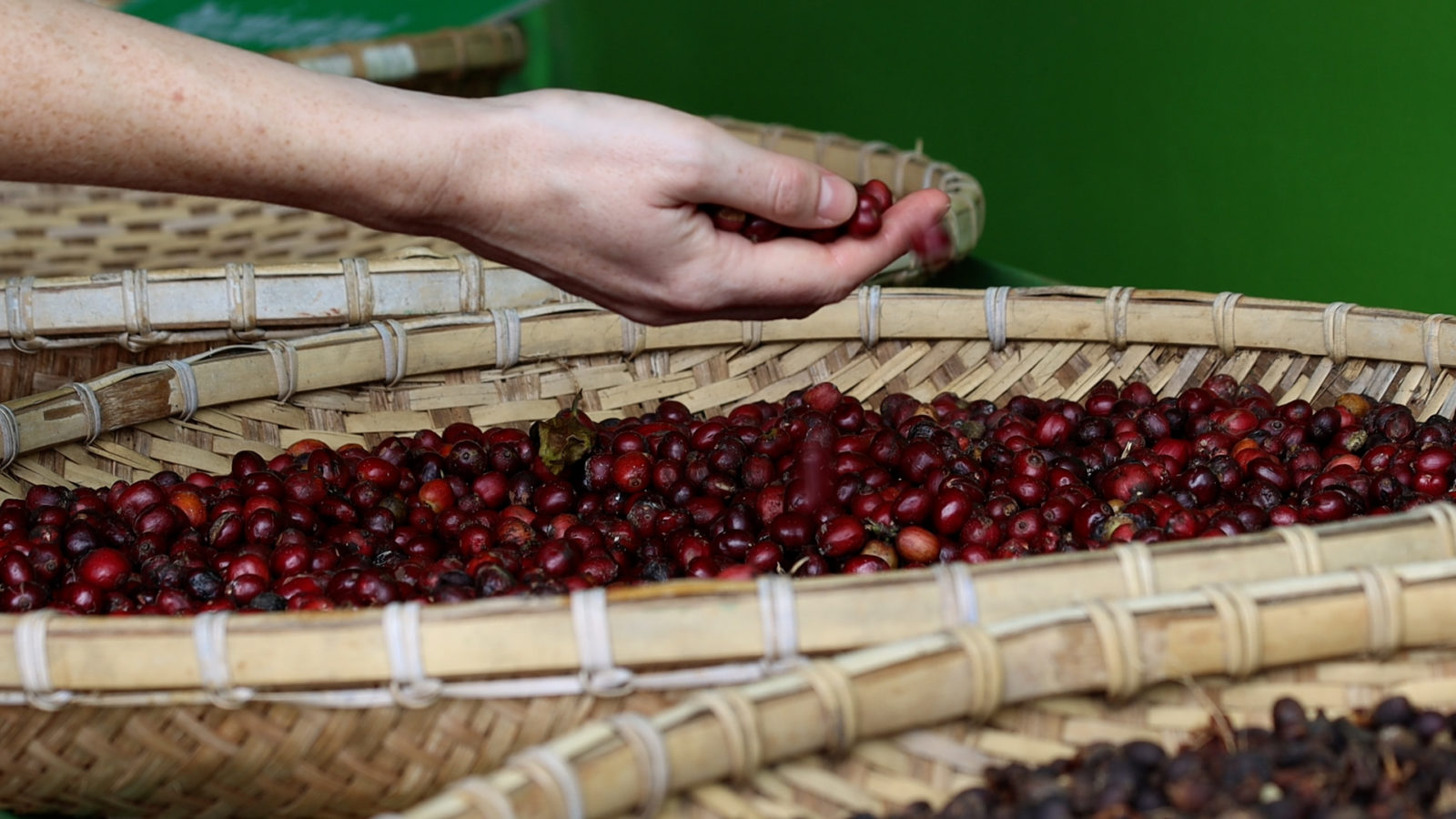
Sadly, tourists are supporting Civet Coffee production without knowing what is going on. It doesn’t help that TripAdvisor has attractions that encourage visitors to visit Civet Farms. That is why Jess Hooper, founder of the Civet Project, has started a petition to encourage TripAdvisor to issue animal welfare warnings on all Civet Coffee attractions.
Sign the petition here. They are not following their own animal welfare policies. And just as we all came together to work towards ending elephant rides and swimming with dolphins, it is time to put an end to Civet coffee production. Visit www.thecivetproject.com to learn more and support campaigns to end civet coffee cruelty worldwide.
What are Civets?

Civets are cute, shy and solitary. We have had the privilege of seeing them on night safaris in places such as Southeast Asia and Africa have seen first-hand just how elusive they are. They have beautiful, spotted fur and big ears that pop up with curiosity when a light shines their way.
Civets lead lives that play an essential part in their ecosystem. Their diet is omnivorous, consisting of fruits, berries, insects, and small vertebrates, which makes them vital for seed dispersal and controlling insect populations.
Unfortunately, the demand for civet coffee has significantly disrupted the civets’ natural behaviors and habitats. Wild civets are captured with cruel methods such as snaring and trapping. They are then caged and displayed for tourists to take photos with. It is time to put an end to this.
Want more ethical travel insights like this? Subscribe for monthly updates.
About Civet Coffee and World Civet Day
What is civet coffee?Civet coffee, also known as kopi luwak, is made from coffee beans that have been eaten, digested, and excreted by civets—small, cat-like mammals found in Asia. The beans are collected from their feces, cleaned, and roasted. It’s often marketed as a rare delicacy, but the truth behind it is much darker.
What can travelers do to help civets?Don’t buy or drink civet coffee
Don’t take selfies with wild animals
Support ethical tourism operators
Share awareness on days like World Civet Day
Donate or follow campaigns like The Civet Project
No. While some companies claim their coffee comes from “wild” civets, most are caged, force-fed coffee cherries, and live in cruel, cramped conditions. Even so-called ethical farms often fail basic welfare standards. If it’s being sold to tourists, chances are it’s not ethical.
Why is civet coffee bad?Because it profits off animal suffering. Civets in captivity often develop stress-related illnesses, suffer from malnutrition, and die prematurely. This industry also fuels wildlife trafficking and threatens already vulnerable civet populations.
Is there such a thing as cruelty-free civet coffee?Technically, yes—but it’s rare and nearly impossible to verify. Most so-called “wild-sourced” kopi luwak is greenwashing. Unless you personally know the farmer and the civets roam free in the wild (not “free-range” in a fenced backyard), it’s best to steer clear.
How can I tell if a civet coffee experience is unethical?Simple test: if they let you see, touch, or pose with a civet—it’s unethical. Responsible wildlife tourism doesn’t involve selfies with stressed-out nocturnal animals in daylight hours.
What should I do if I see civet coffee for sale while traveling?Say no—and speak up. Leave a respectful review, ask the business why they serve it, and report the listing if it’s on TripAdvisor, Airbnb Experiences, or Google Maps. Your voice makes a difference.
Share this article today and help make #WorldCivetDay trend for all the right reasons. Pin below to Pinterest to help spread the word
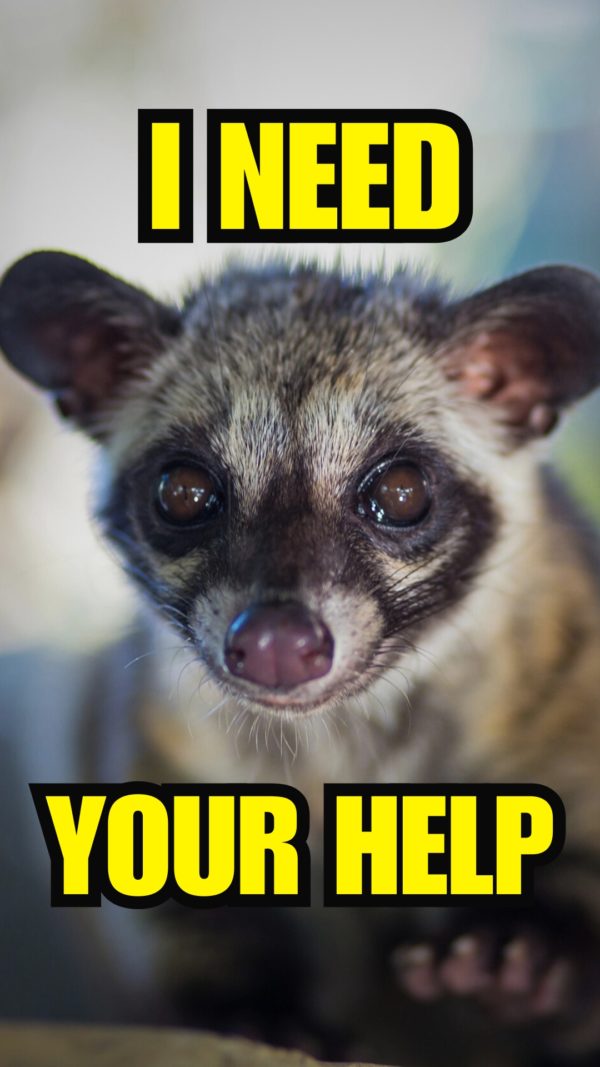
Read more ways to travel sustainably here
Travel Planning Resources
Looking to book your next trip? Why not use these resources that are tried and tested by yours truly.
Book Your Flights: Start planning your trip by finding the best flight deals on Skyscanner. We have used them for years and have found that they have the best flight deals.
Book your Hotel: Find the best prices on hotels with these two providers. If you are located in Europe use Booking.com and if you are anywhere else use TripAdvisor.
Find Apartment Rentals: You will find the cheapest prices on apartment rentals with VRBO.
Learn a Language: We recommend and love both Rosetta Stone and Babbel.
Travel Insurance: Don’t leave home without it. Here is what we recommend:
- Safety Wing – Occasional Travelers.
- Medjet – Global air medical transport and travel security.
Book Your Activities: Looking for walking tours, skip-the-line tickets, private guides, and more? Then we recommend Get Your Guide.
Need more help planning your trip? Make sure to check out our Resources Page where we highlight all the great companies that we trust when we are traveling.
Please visit our sponsor:
Our Sponsor
